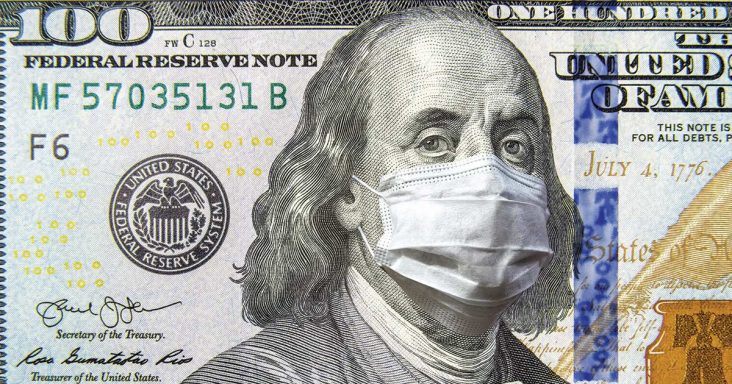CARES Act committee approves more than $200 million for city/county expenses, tourism industry support
by September 9, 2020 6:51 pm 2,480 views

More than $200 million in requests were approved Wednesday (Sept. 9) by the Arkansas CARES Act Steering Committee, with $150 million for cities and counties and $50 million for a grant program to help businesses in the state’s tourism industry.
Budget requests approved by the committee now go before the Arkansas Legislative Council.
The Coronavirus Aid, Relief, and Economic Security (CARES) Act was approved by Congress earlier this year to provide aid to individuals, businesses and state and local governments in response to the pandemic. Arkansas received about $1.25 billion from the legislation. State officials previously set aside $250 million in CARES Act reserve funding, with the primary intent to help fund state unemployment insurance expenses.
Secretary Larry Walther, director of the Department of Finance and Administration, along with Arkansas Municipal League Executive Director Mark Hayes and Association of Arkansas Counties Executive Director Chris Villines presented a proposal to reimburse Arkansas cities and counties for expenses they incurred responding to COVID-19. The plan would set aside $75 million for cities and $75 million for counties. The funding model is based on population for cities and a mix of the state turnback funding and public safety funding formulas for the counties.
Villines and Hayes stressed that the funding plan is “evidence-based” so it’s clear the expenses are related to COVID-19 response.
“There should be no unjust enrichment. For local government, there should simply be a recompense for those costs that are allowable under the CARES Act that we can turn in and get some reimbursement for,” Villines told the committee.
The request also includes $4 million to pay North Little Rock-based CTEH to manage the program and to create a document track record for a follow-up audit when the program is finished.
Following are the top five county and top five city allocations. The amounts are not what each government is guaranteed to receive, but is what they are eligible to receive if they can provide evidence for allowable expenses.
• Counties
Pulaski: $6.789 million
Washington: $4.549 million
Benton: $3.798 million
Garland: $2.354 million
Sebastian: $2.041 million
• Cities
Little Rock: $7.666 million
Fort Smith: $3.415 million
Fayetteville: $2.915 million
Springdale: $2.802 million
Jonesboro: $2.664 million
Support for convention center or other meeting event centers managed by local governments is uncertain, according to Villines and Hayes. Federal guidance is unclear, but it is unlikely any COVID-related revenue losses by such facilities will not be eligible for reimbursements, they said.
TOURISM INDUSTRY SUPPORT
Stacy Hurst, director of the Arkansas Department of Parks Heritage and Tourism, said the state’s tourism industry has been hurt the most as reflected by a 35% year-to-date decline in revenue from the state’s 2% tourism tax.
“The travel and hospitality sectors are the hardest hit in the economy and are predicted to be the slowest to recover,” Hurst said, adding later in her presentation: “This will not make anyone whole, but it will hopefully provide relief that will get them through.”
Montine McNulty, CEO of the Arkansas Hospitality Association, recently told Talk Business & Politics that “independent homegrown restaurants” are at most risk during the pandemic.
“The cities reporting have gone from record-breaking collections in the first two months of the year to a 21.9% decrease. Without swift help from our state and federal government, closures of restaurants and hospitality businesses will happen at a rapid rate,” McNulty said.
Arkansas Medicaid Inspector General Elizabeth Smith, chair of the steering committee, said Arkansas House Speaker Matthew Shepherd, R-El Dorado, and Senate President Jim Hendren, R-Gravette, have endorsed the grant program.
Following are some of the draft guidelines for the program:
• Applicant must be located in Arkansas, have 250 or fewer employees, and must still be in some form of operation to apply.
• Applicant must provide financial data for a specified period (e.g., March through August) for the past three years. Additional data related to business finances and operations may be required.
• Applicant will have to report all prior COVID-19 assistance received from state and federal grants.
The program also includes a clawback provision for any businesses that fraudulently apply or if it’s discovered a grant previously received by a business prevents them from receiving more support.
Sen. Will Bond, D-Little Rock, wanted assurance from Hurst that relief would be provided to businesses in operation less than three years, saying it would be unfair to not support those who opened prior to COVID. Hurst stopped short of a guarantee but offered her “absolute pledge” that she would work with department attorneys and others to find an alternative for those businesses.
OTHER DISCUSSION, ACTIONS
Also during the meeting, Walther told committee members they are getting close to committing the state’s $1.25 billion federal allocations, advising them to “take a measured approach today to what we do.”
“All of them [budget requests] are good and they all have merit. … We as a committee are going to have some decisions with regard to which ones we fund and which ones we don’t. And my recommendation is we don’t get over the $1.25 billion. Let’s don’t commit to more than what we’ve been allocated,” Walther said.
The committee did not approve a request for $6.592 million on mobile health units targeted to support minority communities in the state. Instead, the Arkansas Department of Health was asked to return with a reduced expenditure for that effort.
The committee did approve an $8 million request from the Arkansas Department of Commerce to support the Lost Wages Assistance program that will soon provide $300 a week in added benefit for the unemployed in Arkansas. The committee also approved a $2.8 million request by the Arkansas Department of Commerce to pay Maximus, the third-party vendor managing the state’s unemployment insurance assistance call center.
